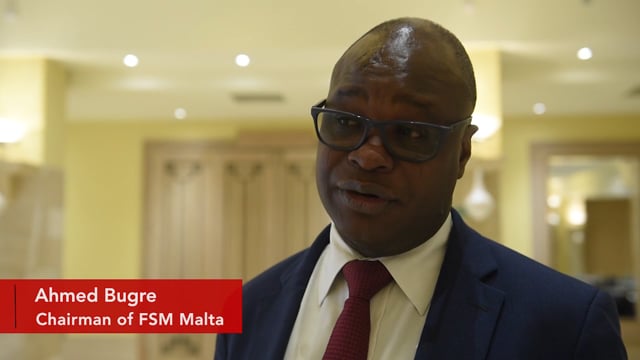[WATCH] Take integration to the people, minister tells mayors
Local Councils must participate in integration for the Integration Action Plan to be a success says Minister for European Affairs and Equality


Integration must go to communities where traditionally integration policies are inexistent, such as local councils says Minister for European Affairs and Equality Helena Dalli at the first annual Integration conference.
“Integration work must now go to communities where there aren’t traditionally integration policies such as local councils… integration is not about numbers, but about people. Integration must happen one person, and one family at a time,” she said.
“The role of local councils, the community we live in is critical in integration to help migrants belong to the cities they are living in,” said Director of the Foundation for the Support and Shelter of Migrants, Ahmed Bugre.
On Friday, the Minister for European Affairs and Equality hosted its first Annual Integration conference to launch the Interministerial Migrant Integration Action Plan and present the first Annual Report on integration.

“Today we are launching the integration charter that will be put into practice in 2019. These policies need to be implemented at the grassroots where people live in order to help people… One year on, I am pleased to say that the Integration Unit is producing tangible results… the number of applications has exceeded everyone’s expectations, along with cultural orientation courses and the first group of integration officers, who will continue to be given continuous training in order to continue to work in the best capacity for migrants,” Dalli said.
The objective of the local integration charter is the integration of individuals and communities at the local level, using tools for local councils to support each other in order to respond to the integration needs within the increasingly diverse community by the means of an action plan.
Ta’ Xbiex Mayor, Max Zammit said that migrants have the capacity to play an important role in boosting Malta’s economy but highlighted that while many cities are still struggling to integrate migrants, measures to integrate migrants have already started to take place.
“While many cities are struggling to integrate migrants, many cities have already created shared spaces in order to integrate migrants into everyday life… integration in everyday life matters, to make sure migrants feel they belong. In this regards Ta’ Xbiex local council has its annual event to unite different cultures through art and culture.”
He said that that it was important that local councils were involved in policy-making, as it is they who are at the forefront of integration and are dealing with migrants on a day to day basis.
Alexander Tortell, the Head of Integration Unit reiterated this point, he said that isolating the integration unit in an office, would not lead to successful integration.
“It is pointless to have an integration unit isolated in an office, where they are making polities but not in touch at a local level, integration is only possible if mainstreamed. In a sense, this is a test in mainstreaming integration… to take it to the grassroots, to the local level… it’s more than just sitting down together and having an “ethnic” meal… we need to go beyond that and see integration as a challenge, and in that recognising the issues and difficulties we can overcome them.”
In order to facilitate integration, the Integration Unit has launched the “I Belong” program which consists of courses run by the University of Malta and MCAST – the courses take place in two stages – stage one includes Maltese and English language classes, along with basic cultural and societal orientation courses – Stages two includes cultural orientation, and Maltese language integration courses.
In 2019, the Human Rights and Integration Directorate (HRID) and UNHCR are introducing a project entitled “Turning of the Tables.” The goal of TTT is to empower migrants and refugee communities to strengthen their own capacity to enter into policy and legislative processes.


.png)

.png)



.jpg)




.jpg)






.png)


